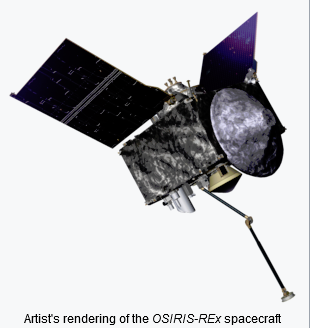No, nothing to do with Egyptian gods.
Or the Stargate series.
After Osiris drops off asteroid samples from Bennu in September 2023, it’s going to be visiting the infamous asteroid Apophis.
https://spacenews.com/nasa-to-repurpose-osiris-rex-for-second-asteroid-encounter/
NASA announced that the “Origins, Spectral Interpretation, Resource Identification, Security-Regolith Explorer”, or OSIRIS-REx, spacecraft, on its way back to Earth after collecting samples from the asteroid Bennu, will travel to the asteroid Apophis after returning samples in September 2023.
The main spacecraft, after ejecting the sample return container that will land in the Utah desert, will fly by Earth on a trajectory that will bring it to Apophis in 2029, shortly after that asteroid passes just 32,000 kilometers from the Earth. The spacecraft will spend 18 months in the vicinity of Apophis, studying the 350-meter asteroid and coming close enough to use its thrusters to brush away surface rocks and expose subsurface materials.
Apophis has long been an asteroid of interest to planetary scientists because of its close approaches to Earth in 2029 and 2036 that, for a time after its discovery, raised concerns about an impact. While scientists have ruled out an impact, the close approach offered the prospect of spacecraft missions to study the asteroid, something the OSIRIS-REx mission team had been discussing since 2020.
Apophis is one of the most infamous asteroids.
Scientists will use the extended mission to study the composition of the asteroid as well as determine if the asteroid’s structure was affected by the close Earth flyby.
The investigation is not without substantial technical risk. The trajectory will take will bring it within half an astronomical unit of the sun, much closer than originally designed when the spacecraft travelled to Bennu, requiring significant engineering work to ensue spacecraft systems can survive several such close approaches before arriving at Apophis.
OSIRIS-REx was one of eight planetary science missions that won mission extensions. NASA extended the other seven missions — Curiosity, InSight, Lunar Reconnaissance Orbiter, Mars Odyssey, Mars Reconnaissance Orbiter, MAVEN and New Horizons.
InSight is at risk from declining output from its solar arrays, so may not live past the end of this year.
There is also uncertainty about how much fuel is left on Mars Odyssey.
Radar images of Apophis
